Keep Rolling Project – Rachael Sherlock interview
08.03.2024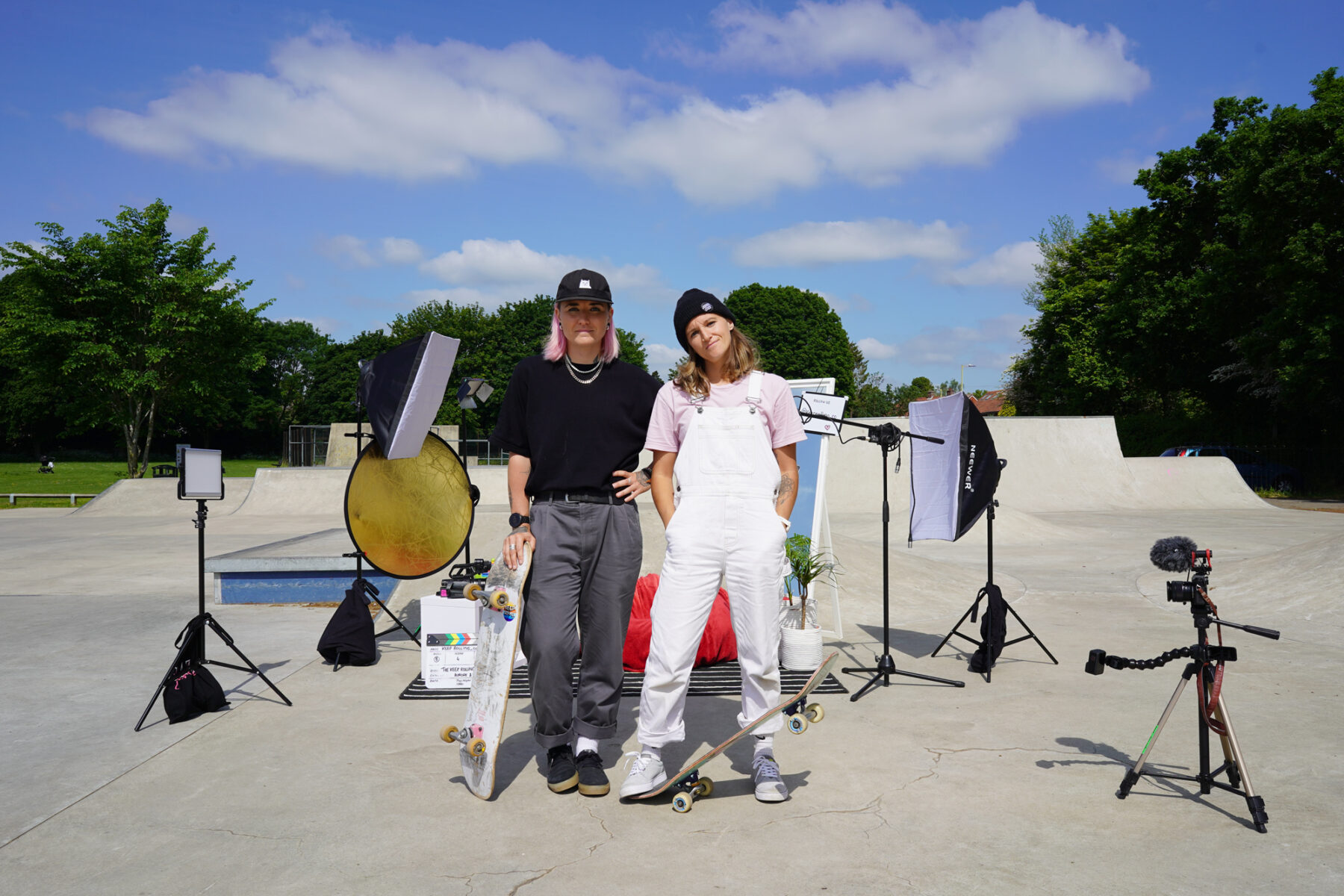
We caught up for a chat with Rachael Sherlock about Keep Rolling Project, an organisation she co-founded and runs with Aurore Roussel. Through a combined programme of skateboard lessons, media workshops and events during the summer months, Keep Rolling aims to empower girls, women, marginalised genders and young people though skateboarding. During winter, Rachael and Aurore document female skate scenes around the world for their Girl Skate Guide mini-documentary Youtube series.
Interview: Kingsford
Photography: Roussel & Sherlock
First of all, tell us a little about yourself and Aurore.
I’m Rachael! I’m a qualified Skateboard GB coach, youth worker and studio technician for broadcast. I’ve also been a camera op on Channel 4’s Big Brother and the BBC’s live feed of the Skateboard GB National Championships. Aurore is a qualified Level 4 PT (personal trainer) in both nutrition and strength and conditioning. She is also an ISCP (International Skateboard Certification Program) skateboard coach and certified community leader with Women Win and Nike SB, which helps us to promote the mental health of girls, women and marginalised communities within our projects. We have both been skating since a young age and share a passion for photography and filming.
How did you both start skateboarding?
I was probably around 10 years old, and heavily influenced by Jackass, CKY and the Tony Hawk’s Pro Skater video games. For a short time, I had a subscription to Sidewalk magazine. I remember my godfather driving me to Bristol in his Morris Minor to buy Bones Red bearings from Fifty Fifty, so I could skate faster. Aside from these bearings, I skated blank decks from a discount bin in Route One, with Fracture trucks and Spitfire wheels. I skated every summer until I was about 17, and then didn’t skate again until I moved to London after university. It was here that I met other girl skaters, formed a group called Nefarious Crew, and did my first volunteering with Skatepal.
Aurore started when her parents bought a skateboard for her brother, which he didn’t use. She must have been eight or nine years old. She grew up in a small village in France next to the boarder of Germany and Luxembourg. She had a VHS 411VM, which had a Rodney Mullen part she watched on repeat. She would pause the video, and then run to the garage to try and recreate the tricks. She won local competitions as the only female participant! Around this time, we both only skated with boys and had no idea there were other girl skaters.
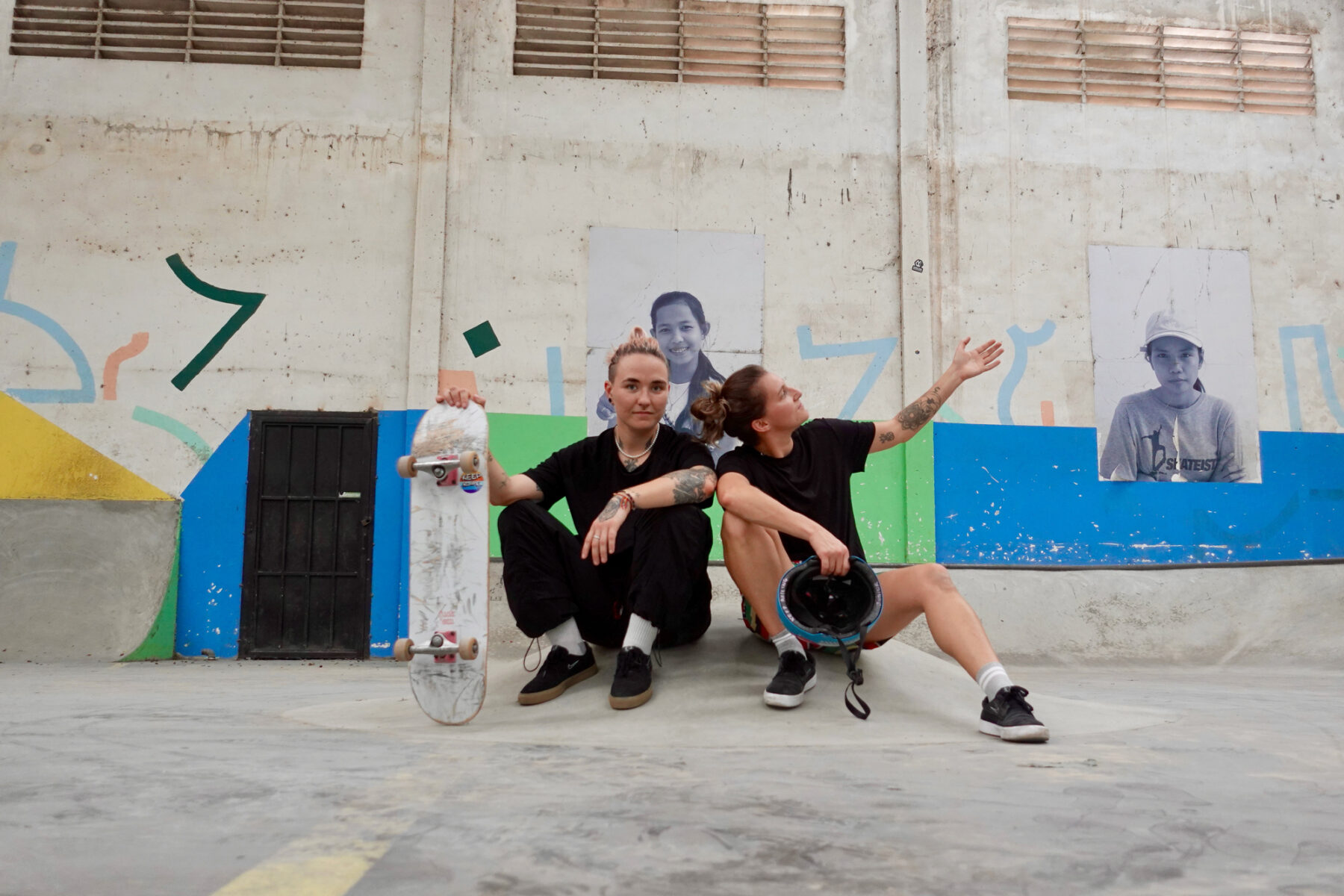
How did you meet?
We met at a Baysixty6 girls night in 2017. At the time, these nights were free to attend thanks to funding from Nike SB, but the scene was still really small, the OGs being people like Jenna Selby and Georgie Winter.
How did your organisation Keep Rolling Project come about?
If we’re super honest, lockdown gave us the boost we needed to get Keep Rolling Project properly together. I had spent a lot of time volunteering and working on other people’s projects, most of which fizzled out, so it made sense to create our own thing. Aurore wanted Keep Rolling to be the person she never had when she was growing up. It’s primary focus at the time was to get more girls on board, create more media content by women for women and to do events for women, where they weren’t the afterthought, a word used by some to describe the early girls comp vibes at places like NASS.
What were your goals when you started and have these changed as you have widened the scope of the organisation over time?
Our goals have changed over time. As well as girls coaching and girls-only events, we did focus on the LGBTQI+ community for a while, but we didn’t want to generalise women and non-binary / LGBT together in the same category; we found this approach wasn’t very inclusive. Instead, we do an annual Pride event, and as there are lots of fantastic collectives focused on women or skaters from minorities, we try to do events that bring all these communities together in one space. We’ve done many creative workshops over the years, but we’ve found our niche in combining skateboarding and media workshops to educate and inspire young people from all backgrounds. We work in areas where young people have never held a professional camera before, and use skateboarding to explore areas like sound recording, action photography, lighting and documentary making.
The Keep Rolling programme is split between summer and winter. Can you talk us through the different areas of work you do in each season?
In the first year, we tried to hold skateboarding lessons and workshops over the winter months, but without an indoor space, it was a disaster. Almost every session got rained off and cancelled. It was disappointing not to have anywhere to operate over winter, but we decided to use this time to travel and support other female collectives abroad instead.
How is your work with Keep Rolling funded?
It’s currently self-funded, with a mix of grants and contracts. Our biggest contract has been running the media side of things at City Mill Skate’s summer school programme for UCL. Smaller seed funding and grants include the Roll Models funding (Women Win and Skateistan), and London Youth’s employability grant. The Brent Cross Town Community Fund has also been a local lifeline to us. The funding pots are small though, from £500 to £4,000. We know of some skate projects in London, which get grants of £10,000 or more, and we hope to achieve this kind of funding someday.
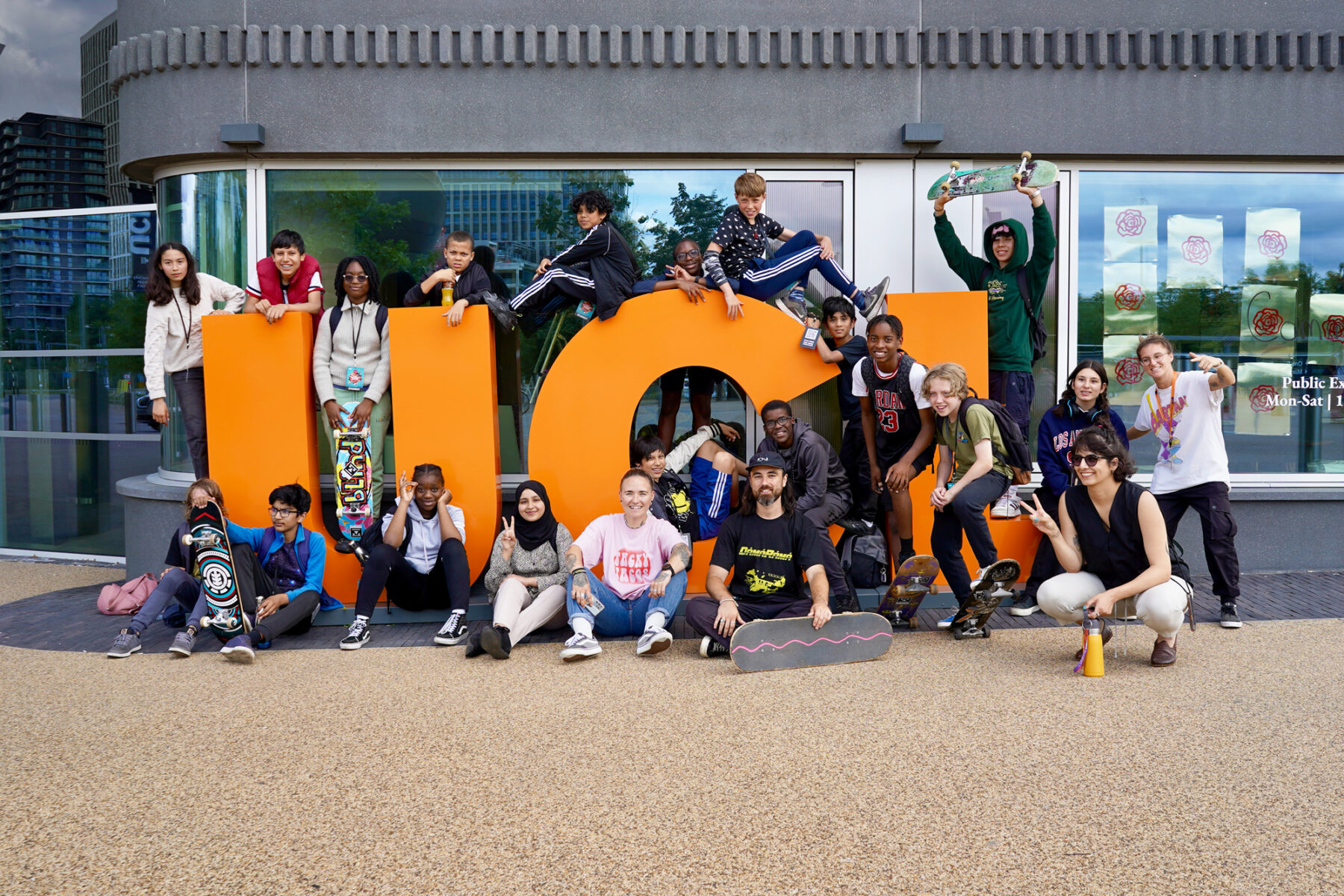
How do your respective areas of expertise feed into your work with Keep Rolling?
Being a studio technician for broadcast means I have a good knowledge of cameras, sound, and lighting. I’ve adapted this to skateboarding. For instance, in our sound workshop, I show a scene from Mid90s – the one where they are skating on the roof and fall. We teach the kids about the art of Foley and recording sound effects for film. They are then given a sound kit to recreate and record all the sounds from an atmosphere track to skateboard popping and skidding effects.
Aurore also studied photography in college, and as well as teaching fast shutter speeds and shooting action, we do a mental health photography walk after some skate sessions, which ties in with her mental health training. Skateparks are often surrounded by nature, so it’s a great way to introduce photography, while focusing on positive mental wellbeing and nature.
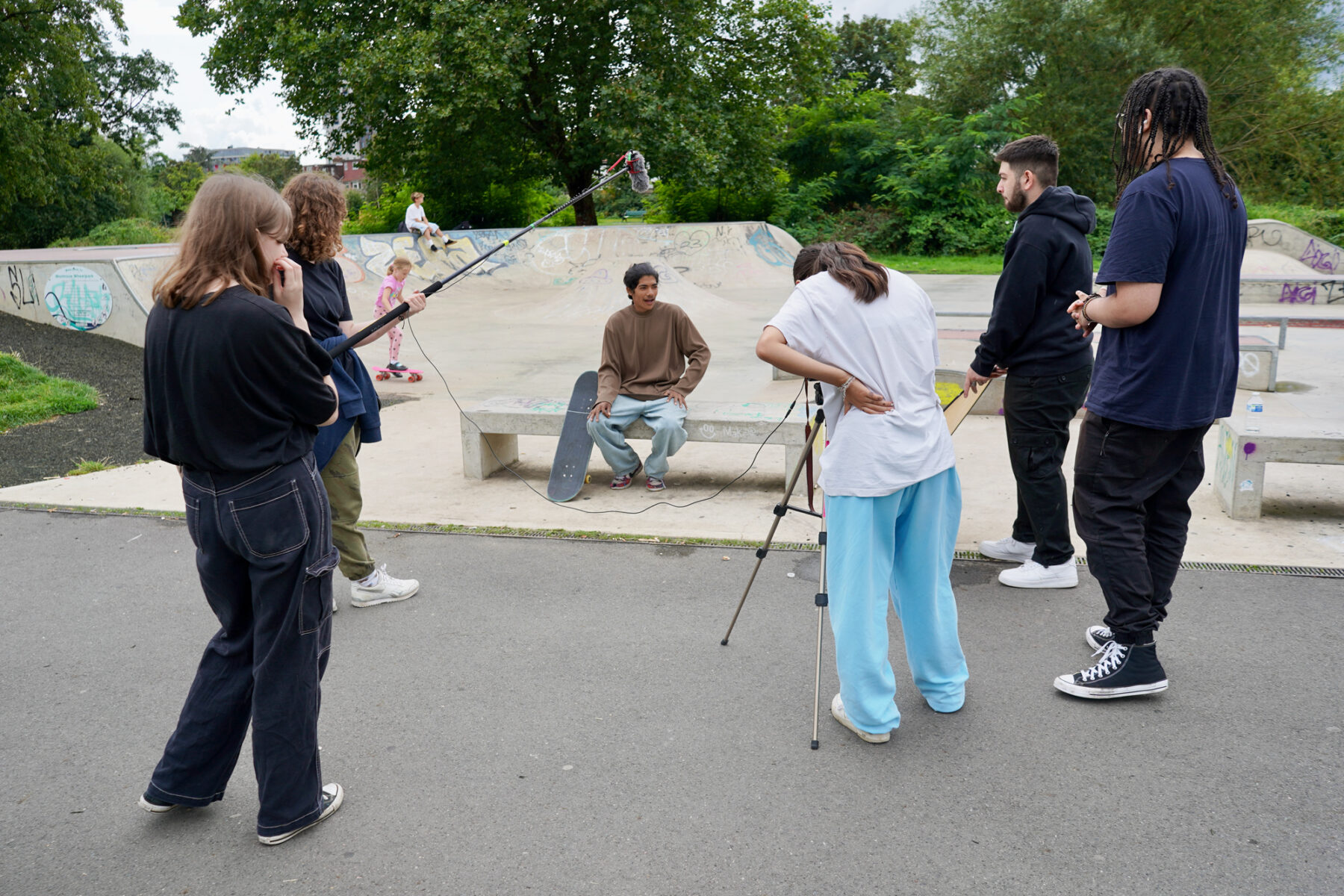
Rachael, tell us more about becoming a qualified Skateboard GB coach.
The Skateboard GB Get Rolling course is a basic introduction to coaching, but it gives you access to discounted public liability Insurance, which in the early days of becoming a skateboard coach, is a huge weight off your mind. It also ensures all its coaches are DBS checked, which is essential when working with young people. Before it existed, I did an online course with SkateIA (Skate Instructors Association), and those two qualifications together, along with hours of youth work, have really helped me grow as coach.
How does Aurore’s PT expertise feed into the lessons?
We always warm up. Even if we are in a classroom doing skate related media studies, we still get the kids up from their desks for a warm-up with Aurore. It helps them to wake up their mind and body, and focus on the tasks ahead. During our skate lessons, we focus on injury prevention through warm-up, an area, which is especially new for women, as most sports studies have been done on men! There is a big movement at the moment focusing on research into women and ACL tears – mainly in football – and around the time of women’s menstruation, and Aurore is keeping a close eye on this research as it will also apply to women in skateboarding.
Aurore is also preparing a new platform for specific skateboard training, with a heavy focus on women’s bodies and injury prevention specific to women. Keep your eyes peeled!
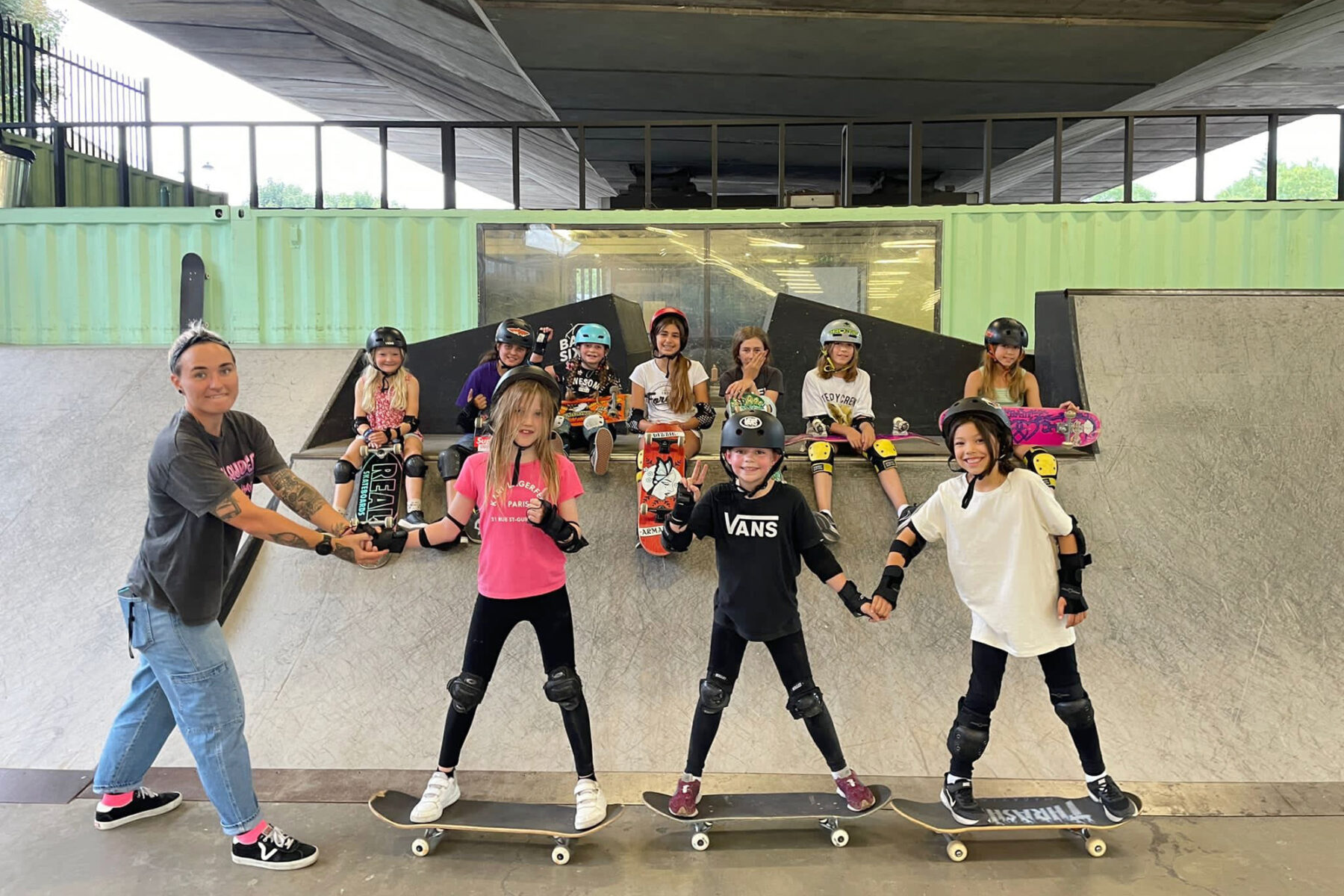
Tell us more about your skateboard lessons.
We do a lot of first-time-on-a-board, introduction-to-skateboarding lessons. For these sessions, there will always be a girls-only option – alongside mixed sessions – to help boost female participation and sign-up. You will also find free skateboard lessons or skate support for more advanced skaters at most of our events. This year we will introduce the Skateboard GB Cruiser Award, so participants can gain a certificate for the skills they learn, and we also want to sign up to the Clown in Action Pass the Torch programme, to give several young people who learn with us the opportunity to step up as trainee coaches.
Am I right in thinking that free access to lessons is an important goal of yours?
Keeping everything free is a huge priority for us. We want anyone and everyone to be able to access our workshops. It’s not just about ensuring that young people stay active and play outside, but about providing equal opportunities. We’ve had children of all different faiths and backgrounds skating together, and if we charged London prices, it would not be affordable for all.
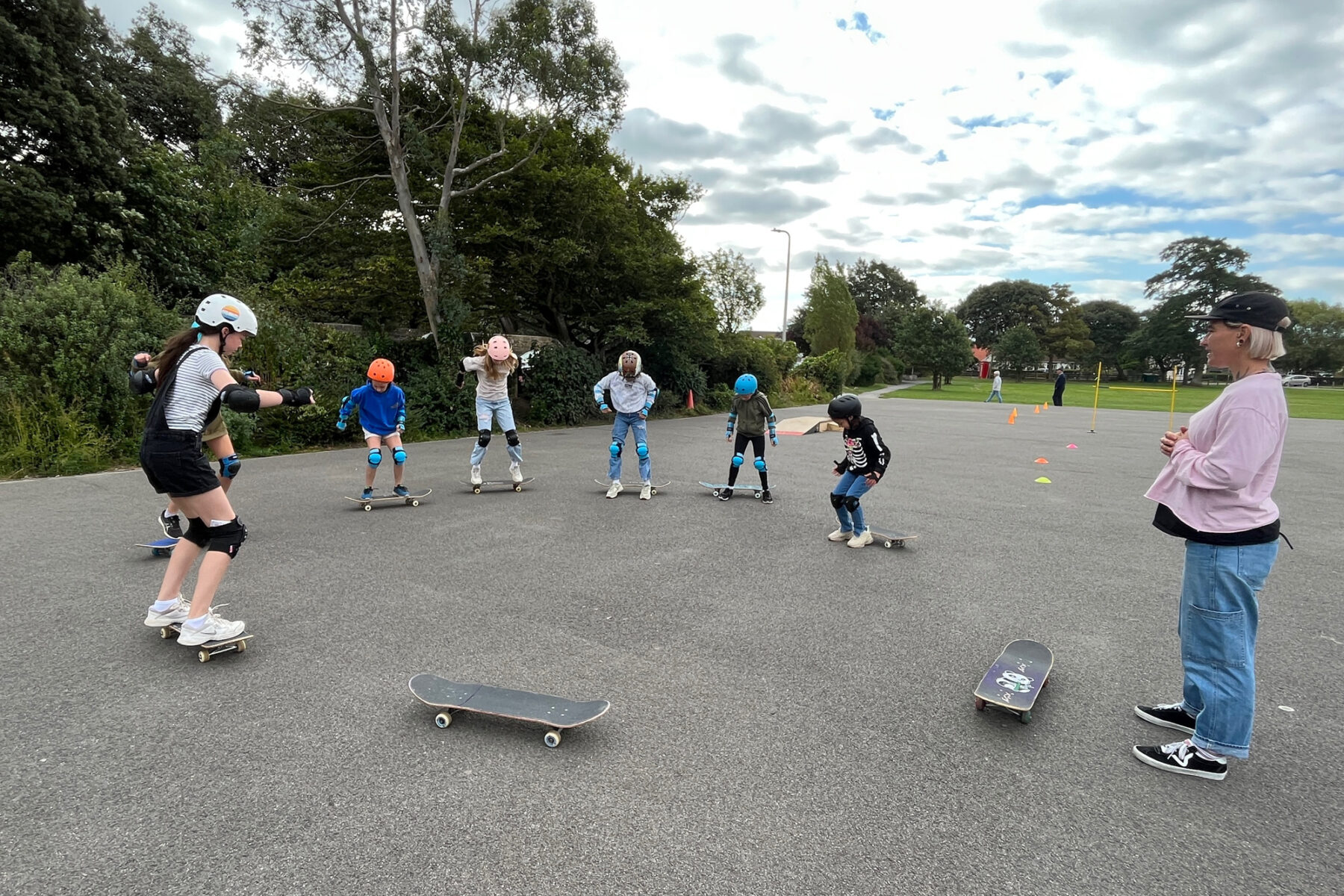
Tell us more about your media workshops.
We teach about fast and slow shutter speed. Slow, we do light writing, and fast, we cover how to shoot action, angles specific to skateboarding and avoiding ‘bum shots.’ In our last project for London Youth, we were able to pair young people with a local skater, so it wasn’t just about capturing a good photo, but also how to work with your skater, keep them motivated and protect the camera from getting hit! They get to use a range of cameras, from Gopros to DSLRs with a fisheye. At the end of a skate and media workshop, we do documentary making, where the participants learn about interview techniques. They switch roles between camera, lighting, sound, interviewer and interviewee. It’s a chance to put all the new skills into practice, but also helps them gain interpersonal skills for things like job or college interviews.
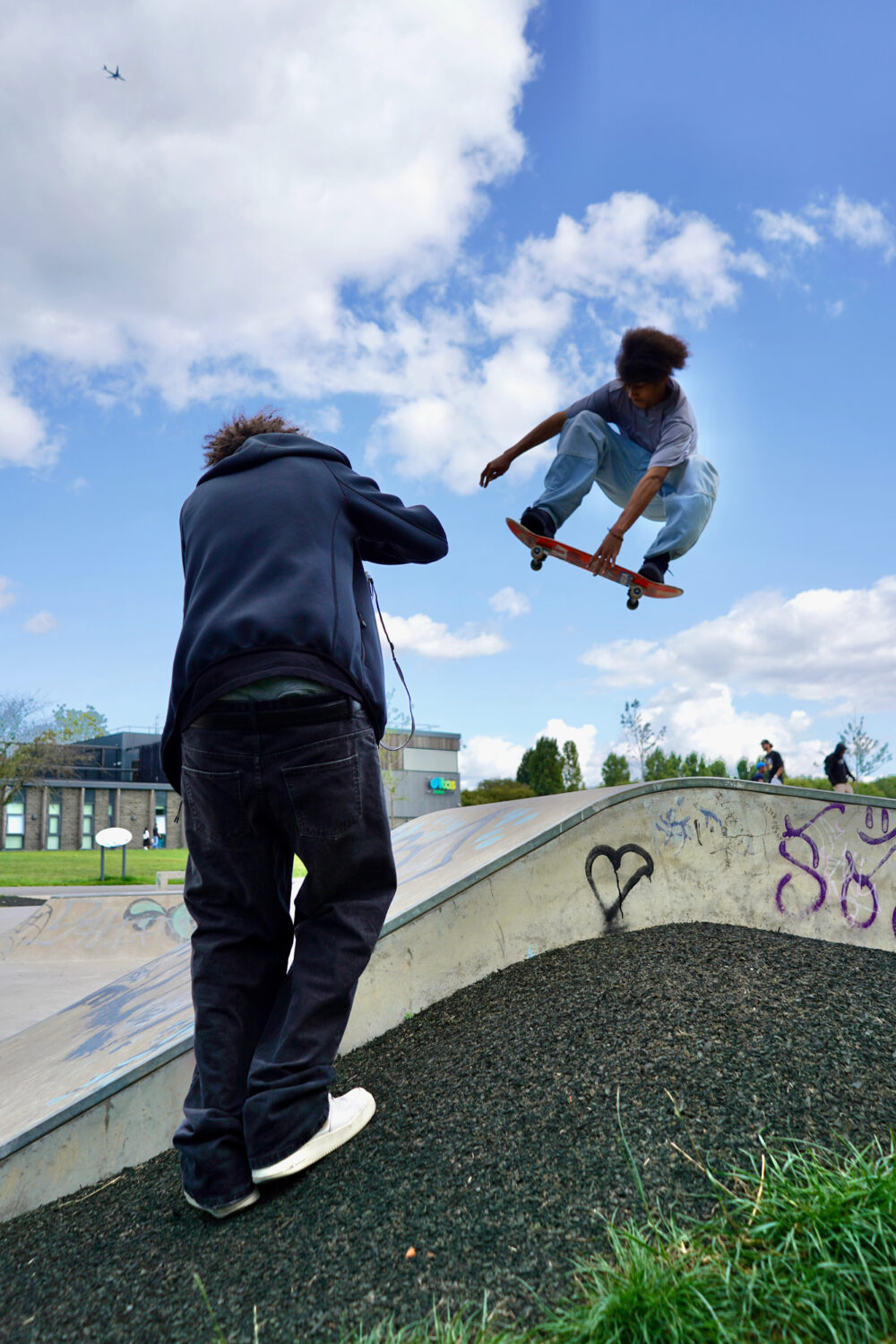
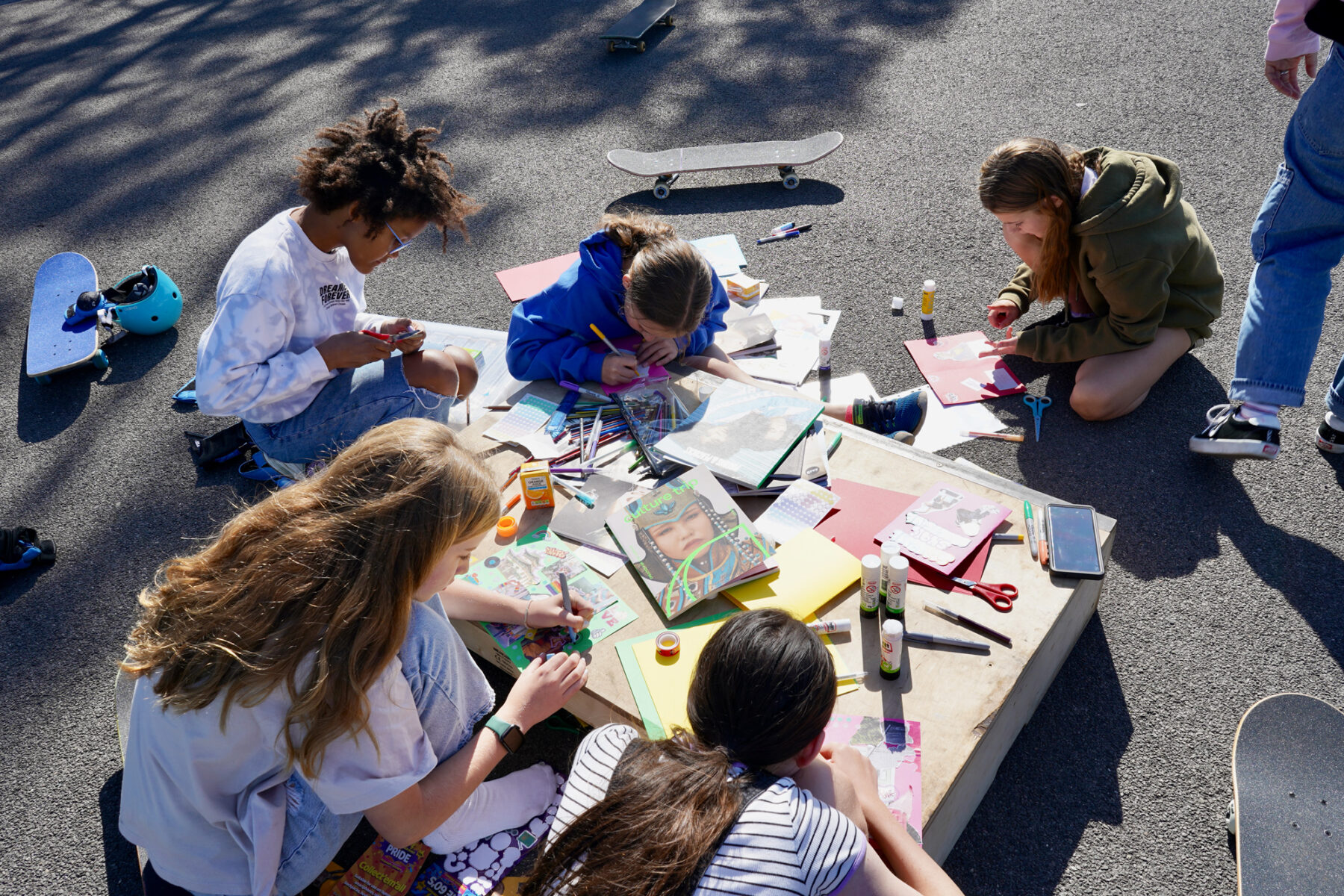
Am I right in thinking an important goal of Keep Rolling is to improve representation of people behind the lens in skateboard media? Tell us more about this.
Totally! The diversity of people making skate content, both behind the lens and in front of the lens is not just a moral imperative for us, it’s crucial to empowerment and providing a fairer representation of people within the skate scene.
Tell us more about the events you put on. Which have been some favourites?
One of my favourites was a sneaky event we managed to put on between lockdowns. Nothing had happened for at least a year. We used the outside area of the Silver Building in east London, with some pop-up ramps from Red Bull. It had rained so much, the ground was wet, but no one cared. All these fresh-outta-lockdown skaters were sliding around in the wet, and having tons of fun. Health-and-safety me was shitting my little pants due to Covid restrictions, but when I look back, it was such a mad and unique experience to bring people together after such a long time.
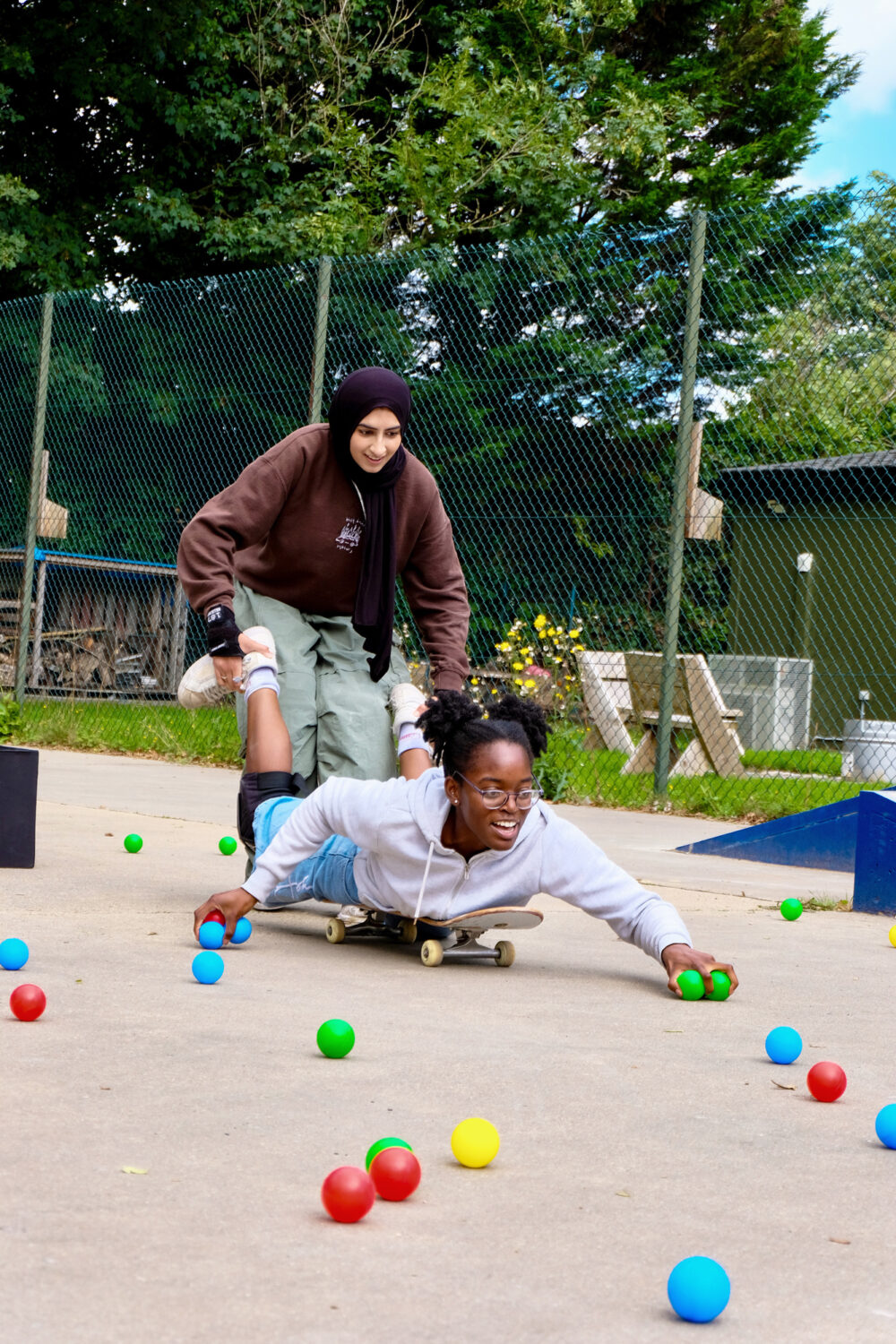
How have you experienced finding brands to support these events?
It’s not been easy at all. I think some brands look at the number of followers you have, and not how many people attend your event, or the quality of your event. In terms of popularity, our events have always had a high turnout. Our followers are all active and loyal, and I like to think we are well-connected, especially with the London girls scene. We’d like to thank everyone who has supported an event of ours in the past, and if you’re a brand willing to get involved, DM us, as we always have a project that needs support!
You have an exciting event coming up in May, the City Mill Skate Festival. Tell us about that.
The City Mill Skateboarding Festival will happen on Friday May 17 and Saturday May 18 2024, and will transform the City Mill Pool Street skate space into a vibrant hub of skateboarding culture and community engagement! Dr Esther Sayers is hosting discussions about the development of skateboarding and its social aspect during academics talks. There will be a small skate market, with local artists, independent shops, food, music and a cash-for-tricks jam. The festival will support and collaborate with The Ben Raemers Foundation, with an art workshop and raffle with skate-related prizes to support a meaningful cause: mental health in the skateboarding world. To top it off, there will be an exclusive skateboarding film premiere Saturday evening at the UCL cinema.
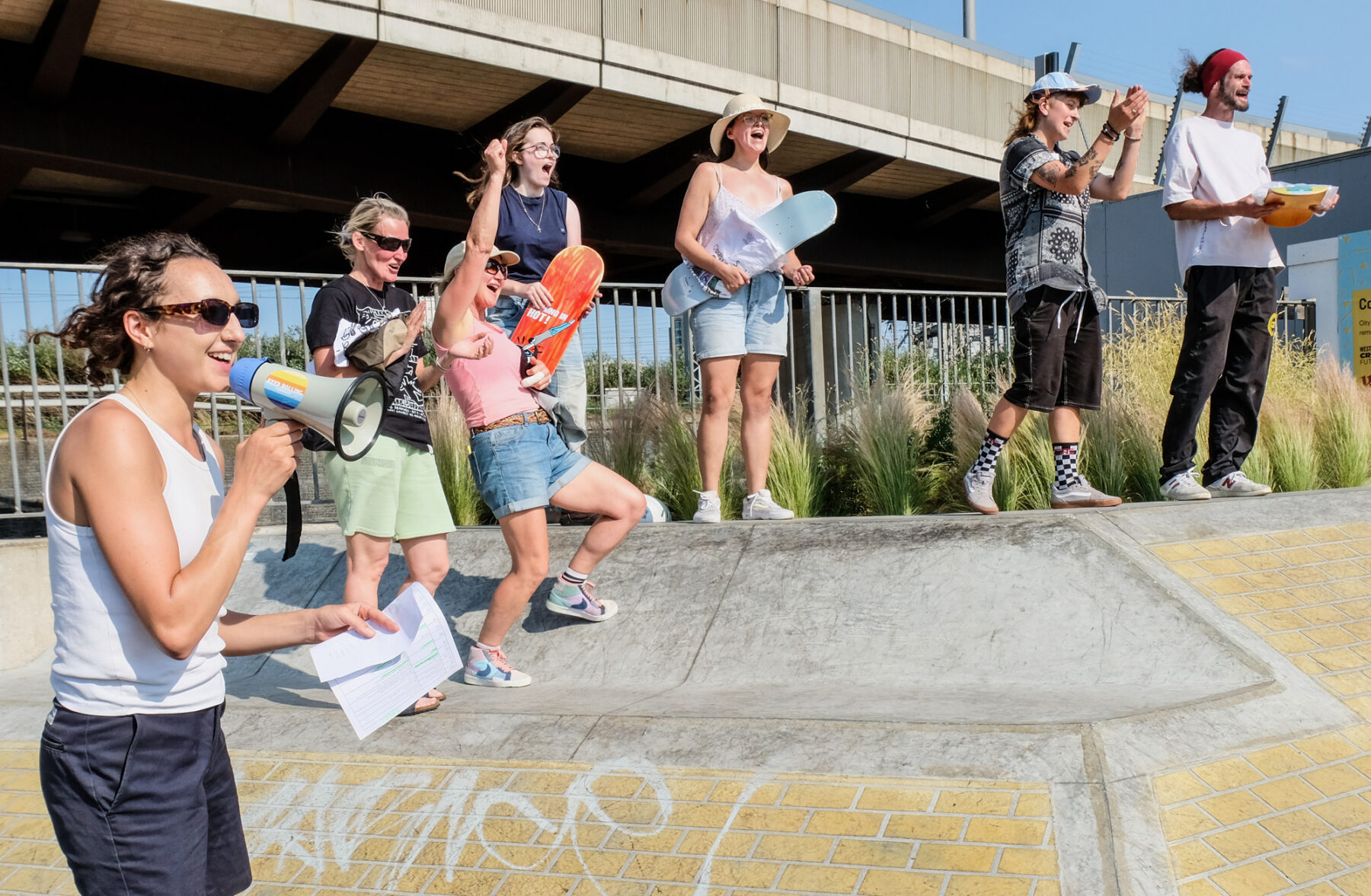
That sounds epic. You’re travelling in south Asia right now, as part of your winter travel programme. As an introduction to this side of your work, tell us about the current trip. What have you been up to and what are your goals with this type of trip?
We’ve been super stoked this trip visit a bunch of NGOs that are improving the lives of children through skateboarding projects – no school, no skate! Both India and Bangladesh have high numbers of child poverty, and these amazing initiatives are supporting children through education, but also providing help to their families and the wider community. Shout out to Janwaar Castle in rural India, funded by the Rural Changemakers NGO, the SISP (Sebastian Indian Social Projects) team in Kovalam, south India, which supports kids from local fishing villages – they have some serious talent here, and most recently, BSKA (Bangladesh Street Kids Aid). We took a day trip with them to the Royal Bengal Skatepark, which is set in nature and helps the kids escape the city life. We assisted with some coaching, and photographed their first all-female skate event. Our main goal with these trips is to shine a light on all the work they do through our Youtube travel series, and, for those that need it, provide information on how people can donate and support their projects.
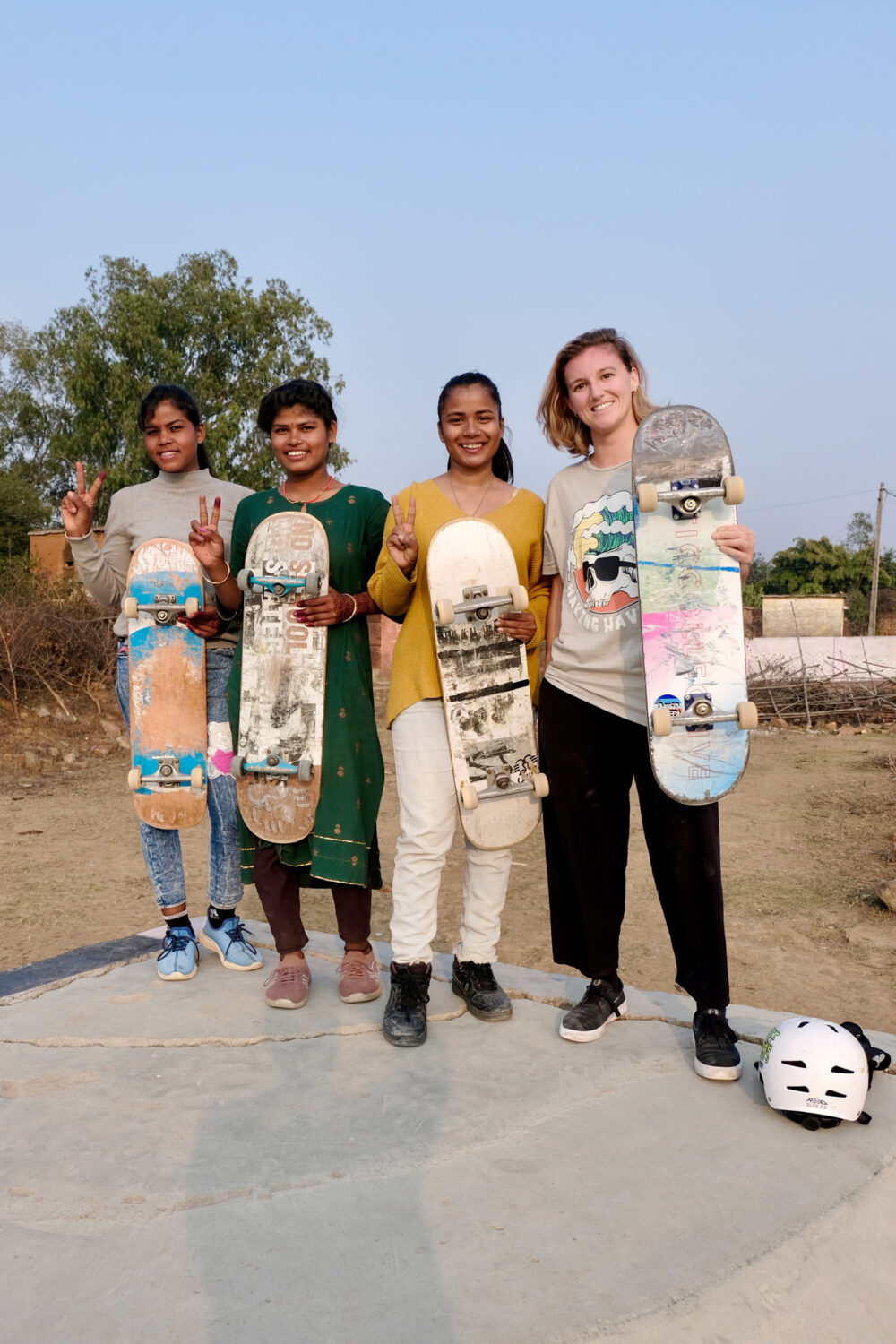
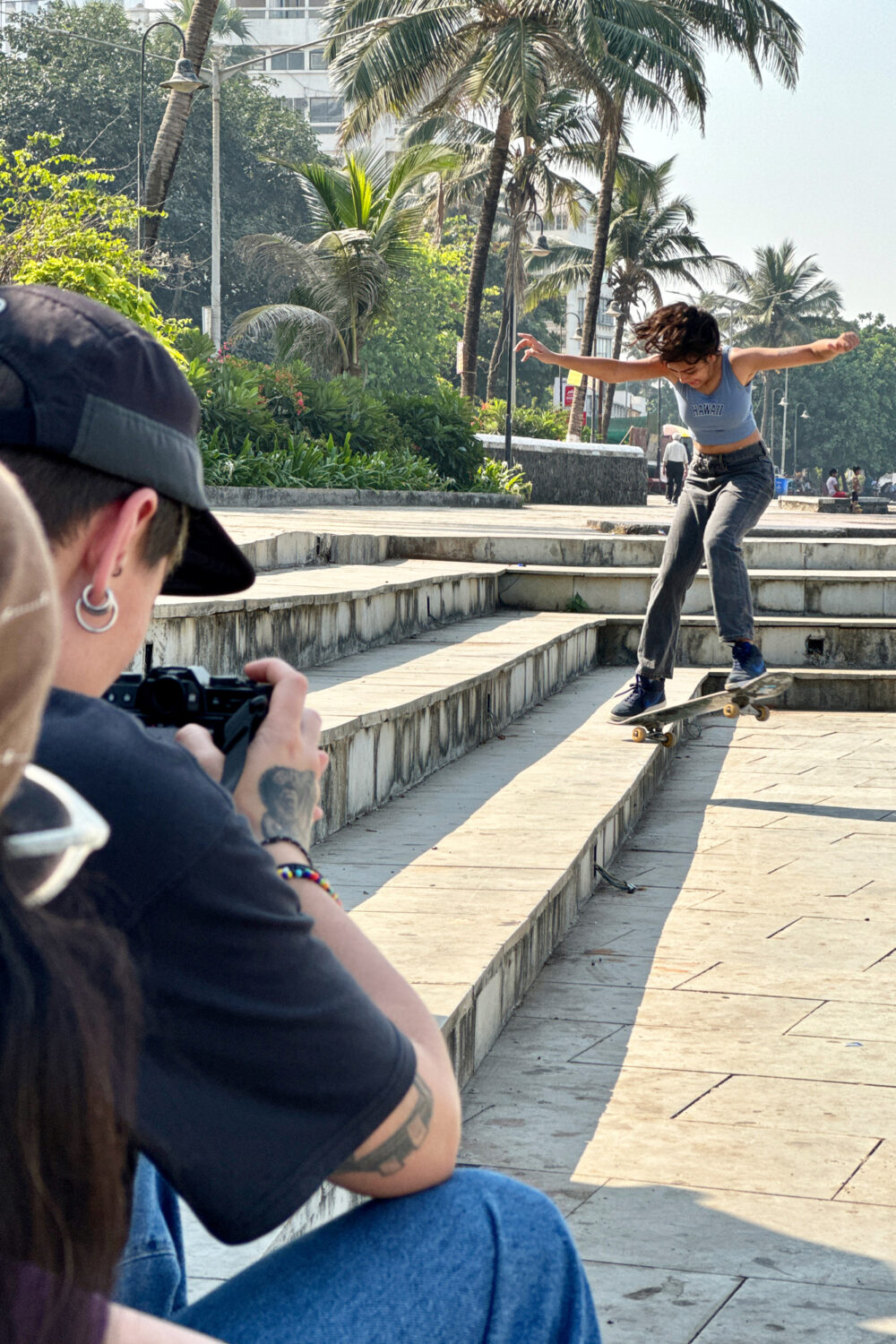
Tell us more about your Youtube mini-doc series.
It all started when we did Mexico to Argentina two years ago. When we started travelling, it was not our intention to do a series, but we met so many amazing people with stories to tell, it just made sense to use Youtube as a platform for longer videos. Originally, we were shooting Reels for Instagram, and for this reason the first series is really rough, as it combines vertical and horizontal footage, an editor’s nightmare! But I promise it gets better as time goes on! Currently on our channel you can find four episodes covering Mexico and episodes on Girl Skate Jamaica and Girl Skate Cuba. It’s all self-funded, which means editing has been slow. Overall, the series documents our travels, as we meet and find female skaters and collectives around the globe.
Which scenes that you have visited around the world, have inspired you most?
In El Salvador there’s a fantastic collective called Namaskate Club really breaking down stereotypes for this country. Due to the local and international surf scene, the skaters have adopted a certain style that really mimics surfing on concrete; it’s so pure and enjoyable to watch. The scene in Cuba was also inspiring. That was the first time I saw a snapped board put back together again, using a block of wood in the middle to join the two pieces. Skaters must be resourceful there, as parts are not easy to come by or afford. There are no skate shops, and a lifelong embargo from the US. Our biggest claim to fame is probably meeting Colombian skater Anacleta Rendón, who spent days touring us round all of Medellin’s skate spots, and also the Imilla Skate collective in Bolivia, who are world-famous for skating in their traditional clothing. They were in National Geographic!
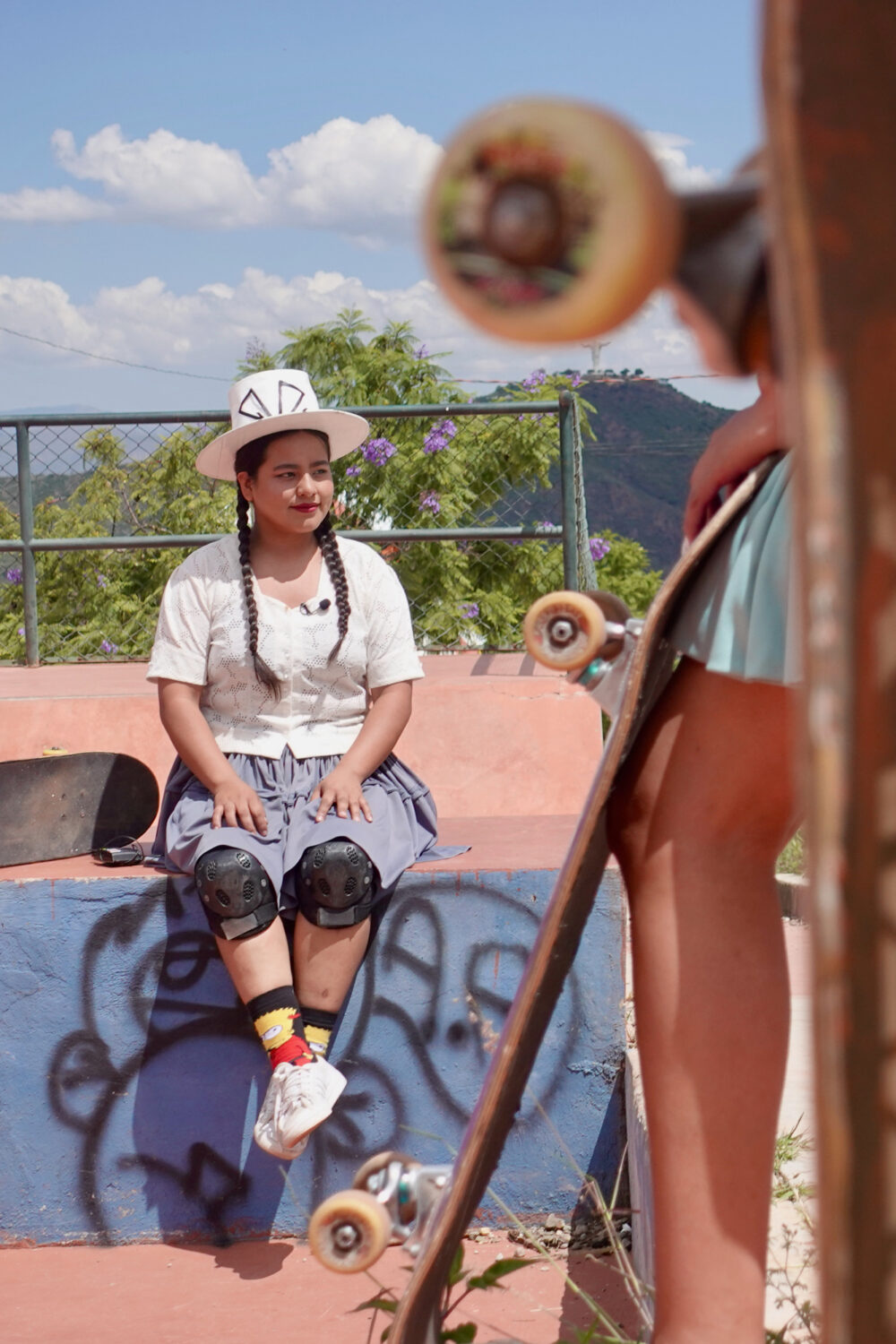
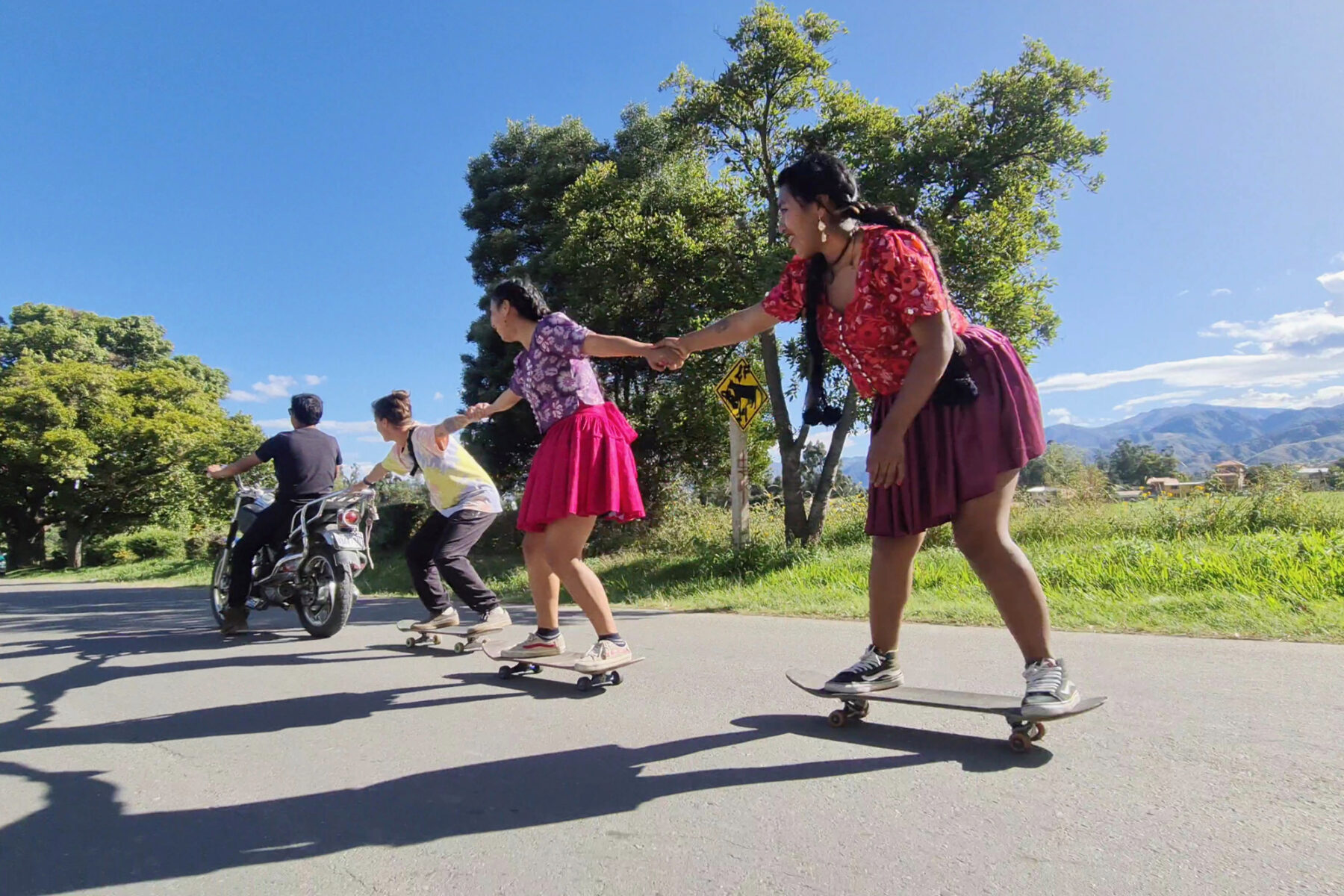
How do you choose where to visit?
For a long time, we seemed to follow where Make Life Skate Life, Wonders Around the World and Concrete Jungle Foundation were building parks. This took us to Suli Skatepark in Iraq (the Kurdistan part, to be precise, which is safe, for anyone who wants to visit) and places like Taghazout in Morocco and La Paz in Bolivia. But mostly, it’s decided by cheap plane tickets. I use Jack’s flight Club, which is great if you’re not fussy where or when you go!
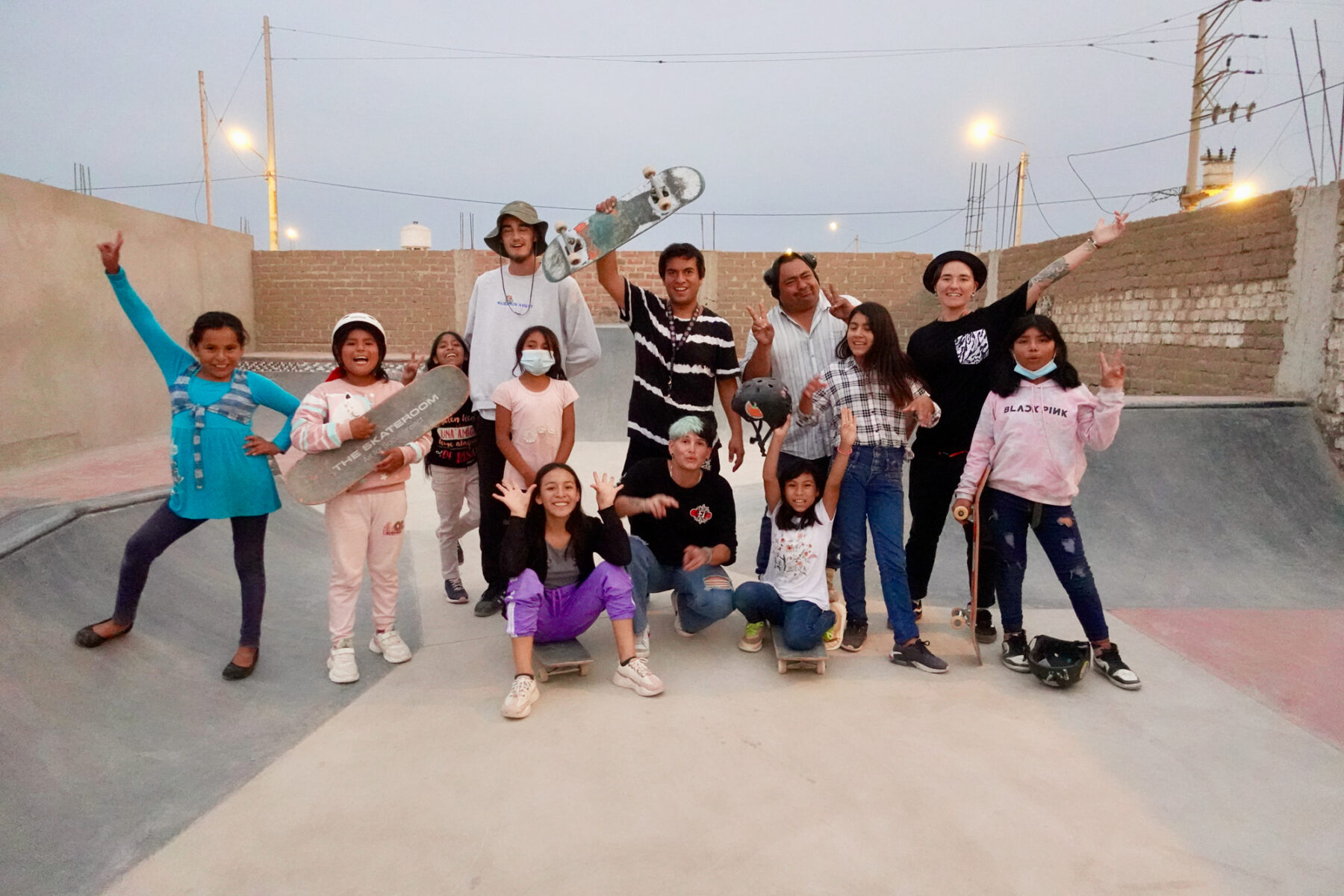
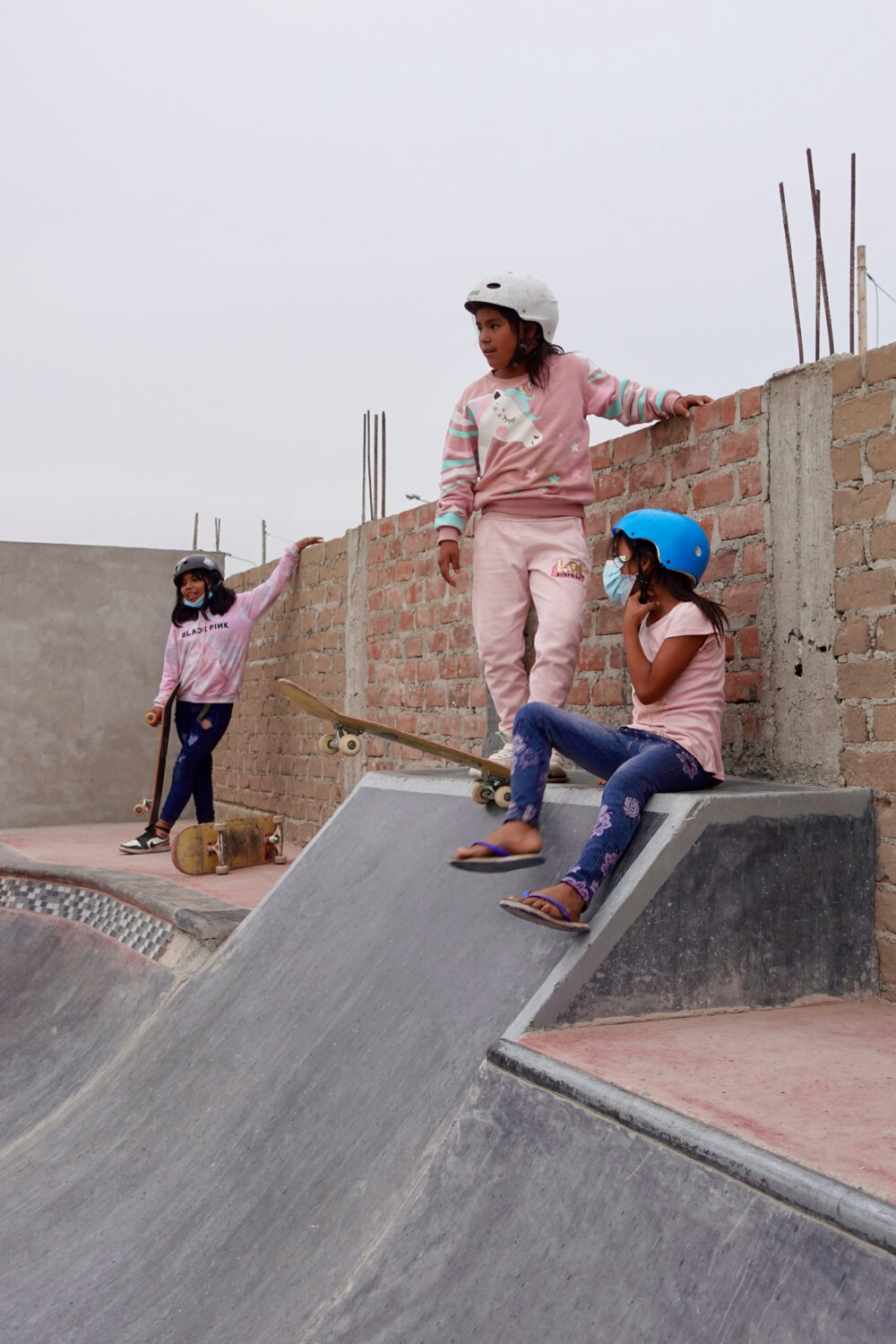
Where is your next destination?
From here (Bangladesh), we hope to cross into Bhutan, if our visa comes through in time. Where is that, I hear you say? Above India, close to Nepal. They have only one skatepark, which was funded by the family of an American Skater, who sadly died. Bhutan is unique because it was the first carbon-negative country in the world. Visiting as a tourist is expensive, though; there’s a tax of around $200 for every day that you’re in the country. And like North Korea, you have to be accompanied to most places by a guide, which will also cost you.
What are your hopes for the future of Keep Rolling?
We really hope with time, the Youtube series could provide essential funding to help us travel further, and for us to be able to support female skaters around the globe. We also want sustainability for our skateboarding and media projects in the UK, a grant that would help us run for at least a couple of years. Personally, I’d like us to shoot an all-female UK skate film, and be paid to do it! Aurore would like to lead the way in sports training and rehabilitation for competitive skateboarders.
